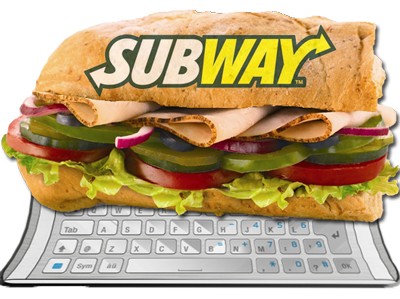
Article Contributed by Tami Stodghill
I read a great ebook awhile back. It actually provided potent pointers on how to set your business apart from all of the other business opportunities out there. And having read the whole book, one suggestion in particular stuck out as a great way to tell if a prospect would really be able to be successful in the opportunity you have.
Most business owners conduct a phone interview with prospects asking what they are currently doing and what they liked about it, and what they are looking for, exactly, in a home-based business opportunity. What they may fail to do is ask “why” the prospect is looking for the opportunity. What’s the difference? A big one!
See, when asking a potential client about his or her present situation and desires, in a great number of the cases, you will get a pretty general response—something like “I want to make alot of money”, or “I want to work from home”. But those responses, although telling, are not the key to what may or may not mean that this person would be a good fit for a home-based opportunity. Because it’s the “why” they want those things that matters and drives a person to succeed.
After reading this ebook, I began making it a point to ask prospects who contacted me exactly “why” they wanted to “work at home” or “make a lot of money”. The answers were surprising and actually very insightful. They let me get to know what the prospect was “about” so to speak. From the single mother who wanted to work at home to avoid daycare costs which were stifling her, to the gentleman who wanted to make lots of money to help his parents pay their medical bills and get health insurance himself, the reasons speak volumes about whether this person will indeed have the drive necessary to succeed.
When a person doesn’t know why they want a home-based business, I believe they are sometimes setting themselves up for failure. Not always. But many people don’t see it as real work and picture sitting at home and waiting for the phone to ring or an email to come in. It has to be much more than that to really be lucrative. Sure…alot of opportunities say “sit back and watch the money roll in”. And I suppose in some cases it might to some degree. But would I want to be a part of a company that didn’t offer continued support and mentoring, a great product or service, new and exciting marketing ideas, and key, ambitious people that were continually striving to expand? No. I want to know that the people out there who are offering the business opportunity and product that I have brought them in on, are willing to take the time to ensure that they are, in turn, selling the opportunity to like-minded people. I value the business we are in and try to work with quality people who are in it because they, too, believe in the product and business.
We only put in part time hours, that’s true. But those are quality, dedicated hours and we continually are seeking new ways to market and advise prospects about our opportunity. We do a few key things daily, but we also explore new options and most certainly have never “sat and waited”. When we aren’t marketing, we are learning more about the product and the company and participate in anything the company has to offer that will further our success.
If you sell to just anyone and their “why” isn’t enough to drive them, will they succeed? Maybe. But I assure you that if you sell your opportunity to someone who is goal-driven, they will make far more of the opportunity and your business will secure key people that will contribute to the continued success of your product or service in the market place.
About the Author
Tami Stodghill was the Press-Relations manager, for a world-wide extensible-technology distributor based in London and the US for 20 years. She was also a freelance writer for several industry publications and is now a home-based business owner with WMI. She makes her home in Page-Lake Powell, Arizona, in the summers and Palm Harbor, Florida in the winters where she enjoys boating and reading, camping, hiking and meeting new people. She runs a blog site exclusively to offer tips for success for any small or home-based business.



 More and more, women are discovering that franchising is a great way to become a business owner. Whether your background is banking or baking, marketing or mothering, you’ve probably developed a set of skills that will translate to any number of franchise opportunities. And, because a franchisor will provide you with the systems, operations and training, you can make a complete career change without starting at the bottom and working your way up!
More and more, women are discovering that franchising is a great way to become a business owner. Whether your background is banking or baking, marketing or mothering, you’ve probably developed a set of skills that will translate to any number of franchise opportunities. And, because a franchisor will provide you with the systems, operations and training, you can make a complete career change without starting at the bottom and working your way up!